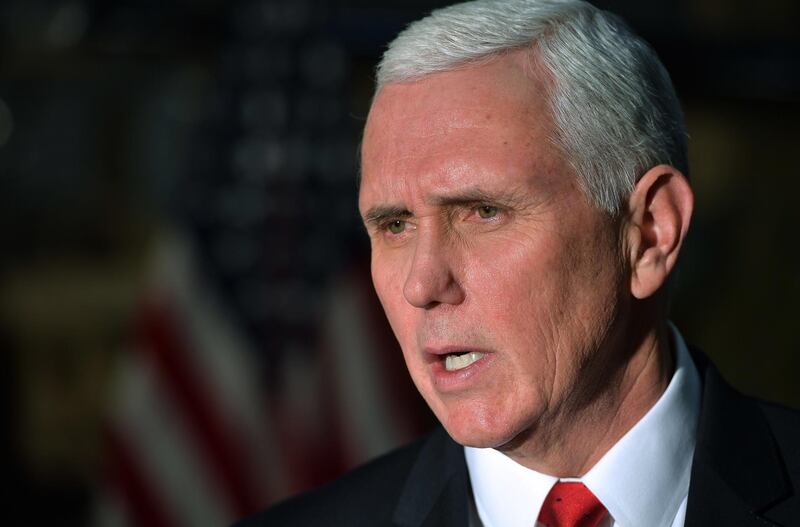It was rescheduled twice, called off, then announced again, but US vice president Mike Pence's first trip to the Middle East is finally happening.
The visit, which also includes Jordan and Israel, has been shrouded by confusion, following the uproar over Donald Trump’s decision on Jerusalem last month, and an ultimately successful US tax reform vote for the president. Religious leaders have snubbed Mr Pence.
"The visit is a terrible idea, it's hard to find a worse planned and timed trip for a US senior official to the region than this one," Ilan Goldenberg, a Middle East security director at the Centre for New American Security (CNAS) told The National. Dispatching Mr Pence to the region, one month after Mr Trump's recognition of Jerusalem as Israel's capital, then partially cutting US aid to Palestinian refugees, with no peace plan, is "an invite to increase tension" said Mr Goldenberg, who was chief of staff to the special envoy for Israeli-Palestinian negotiations in the Obama administration.
Unless Mr Pence can call for Israeli restraint or publicly embrace the two state solution in his Knesset speech, "we are in a very tough moment for the peace process," Mr Goldenberg added.
Read more: Mike Pence postpones trip to Middle East
Underlining the difficulties, Mr Pence's itinerary does not include any meetings with Palestinian officials who have blanked him since the Jerusalem decision. The White House said the trip will address "persecuted religious minorities" which was the original thinking when the visit was first planned in October. But with Egypt’s Coptic Church and the grand mufti of Al Azhar cancelling planned meetings with Mr Pence and a refusal to welcome the vice president to the Church of the Holy Sepulchre in Jerusalem, effective outreach seems unlikely.
However Jonathan Schanzer, senior vice president at the foundation for defence of democracies, said tension with Palestinian leaders will not render the trip meaningless, as major regional governments will welcome the venture. "US ties with the Gulf and traditional allies are at historic highs," said Mr Schanzer, referencing the focus on containing Iran.
The US vice president "can lay tracks for regional peace on this trip, especially now that the Jerusalem issue has died down," Mr Schanzer argued.
The need to gain traction on the peace process is not helped by continued upheaval in Mr Trump's threadbare foreign policy team. Mr Pence will be accompanied by deputy national security adviser Dina Habib Powell, who is soon to leave the administration.
Since the Jerusalem announcement, Arab governments have been lobbying the Trump administration for a balanced set of ideas to relaunch the peace process.






